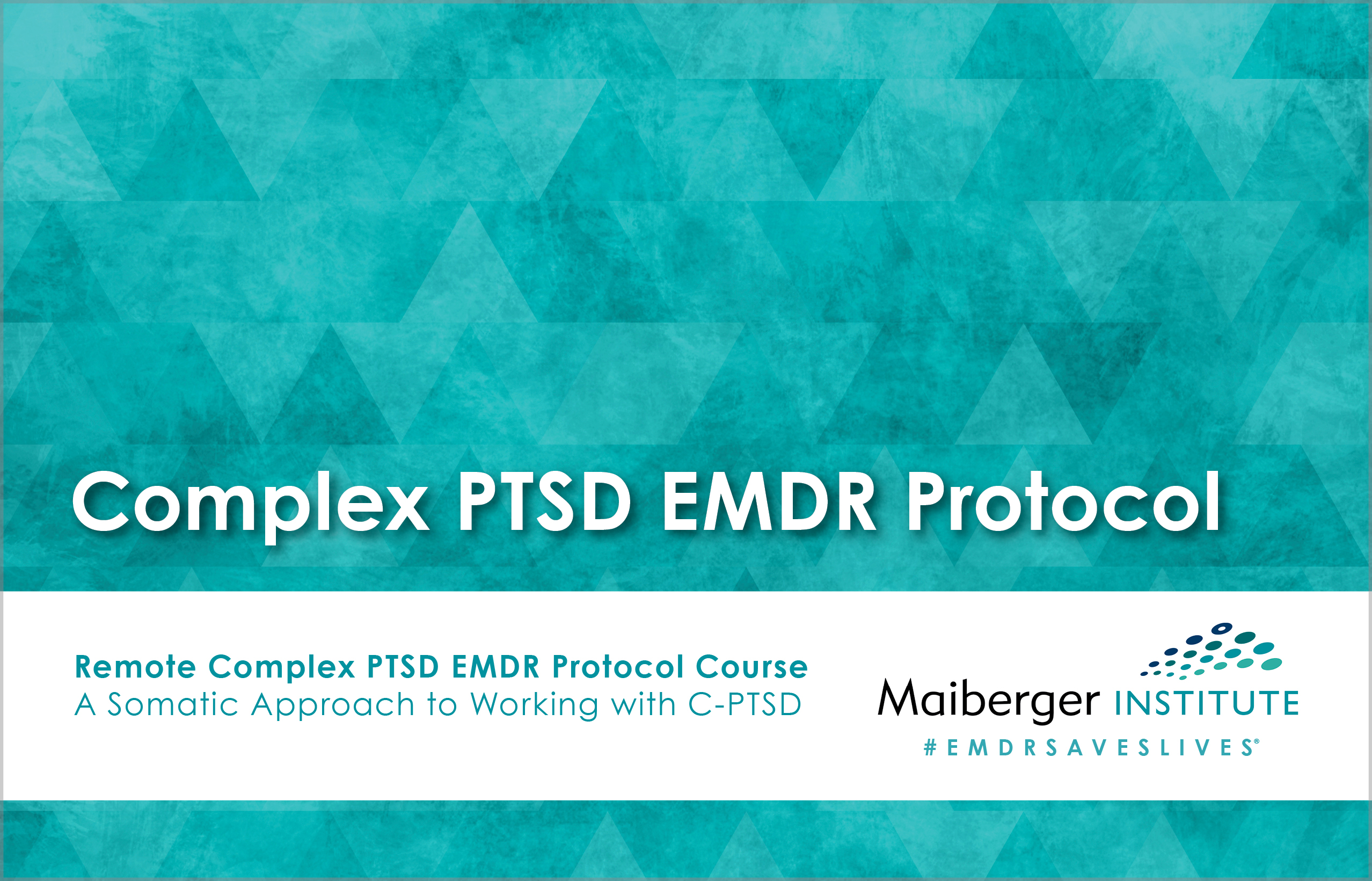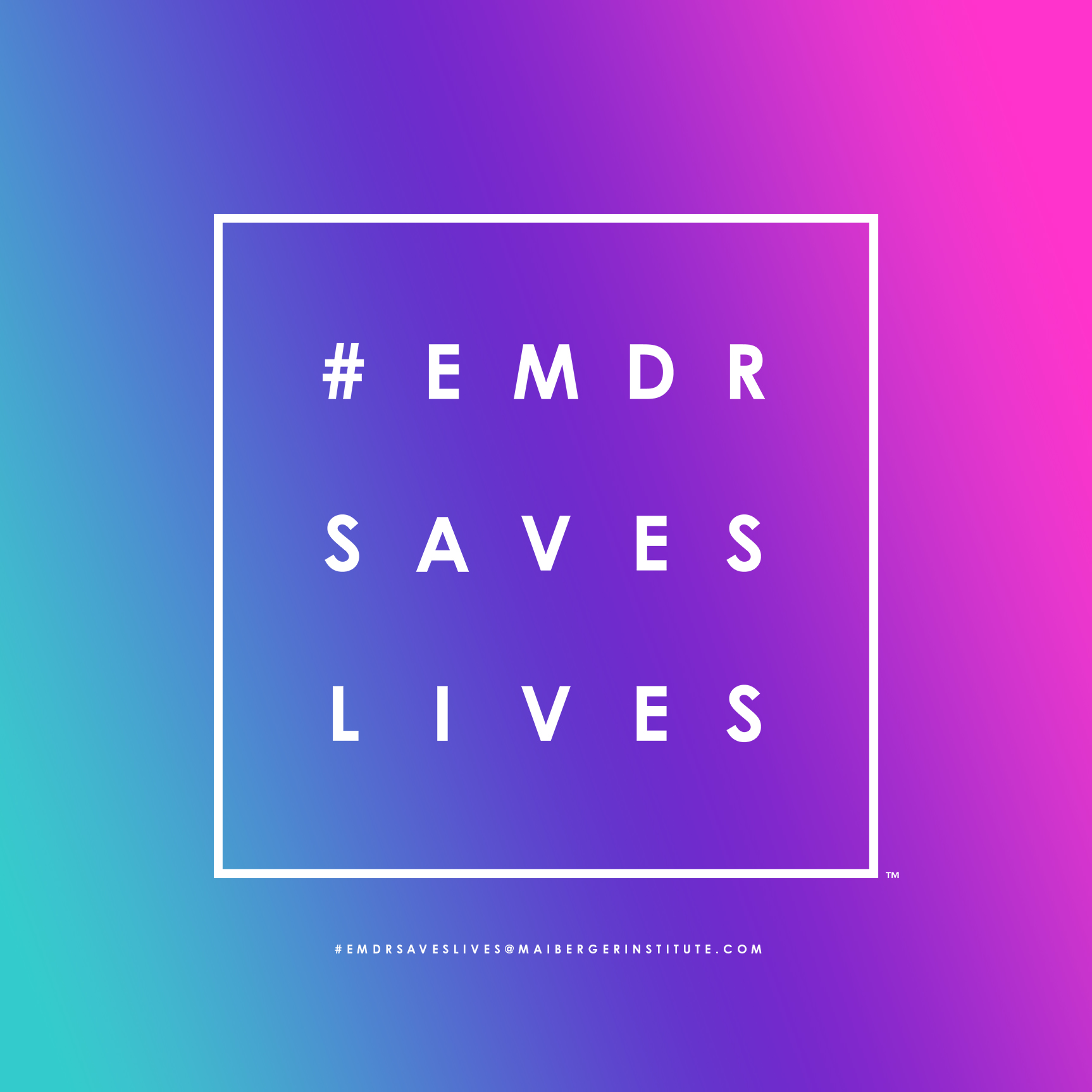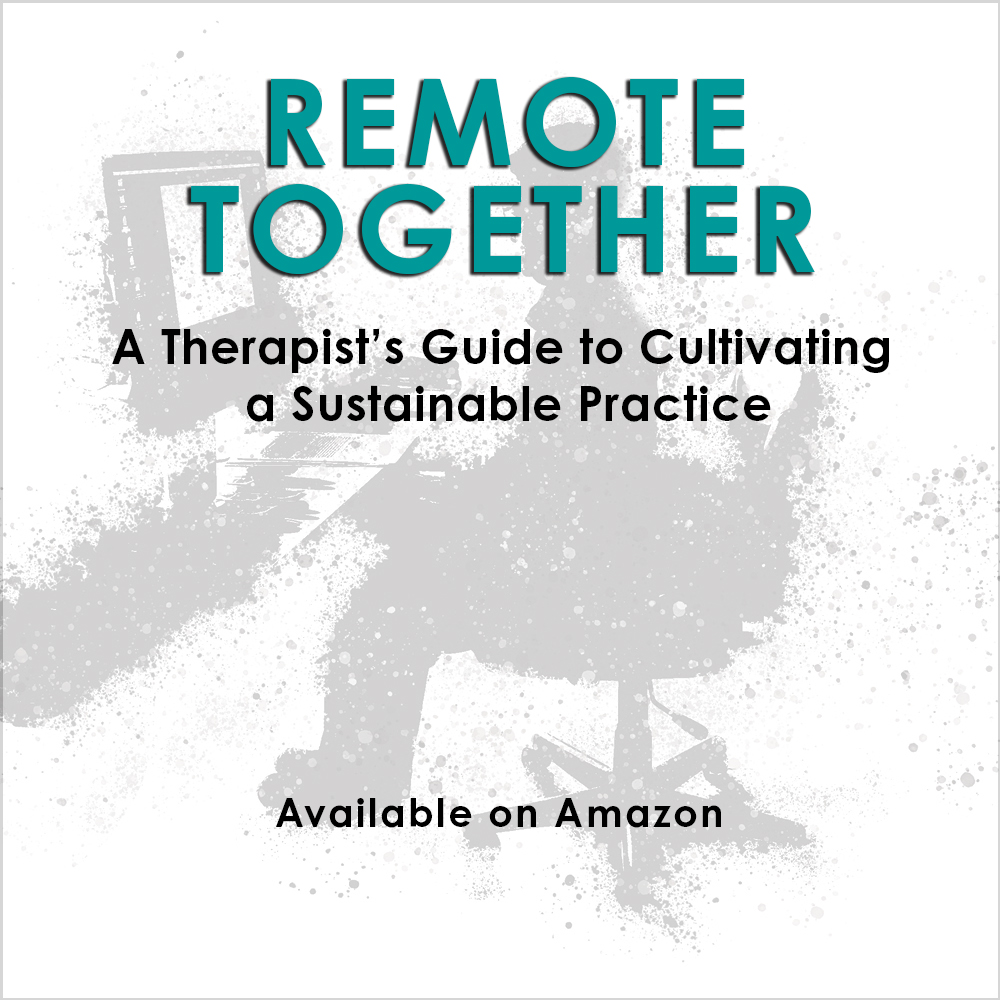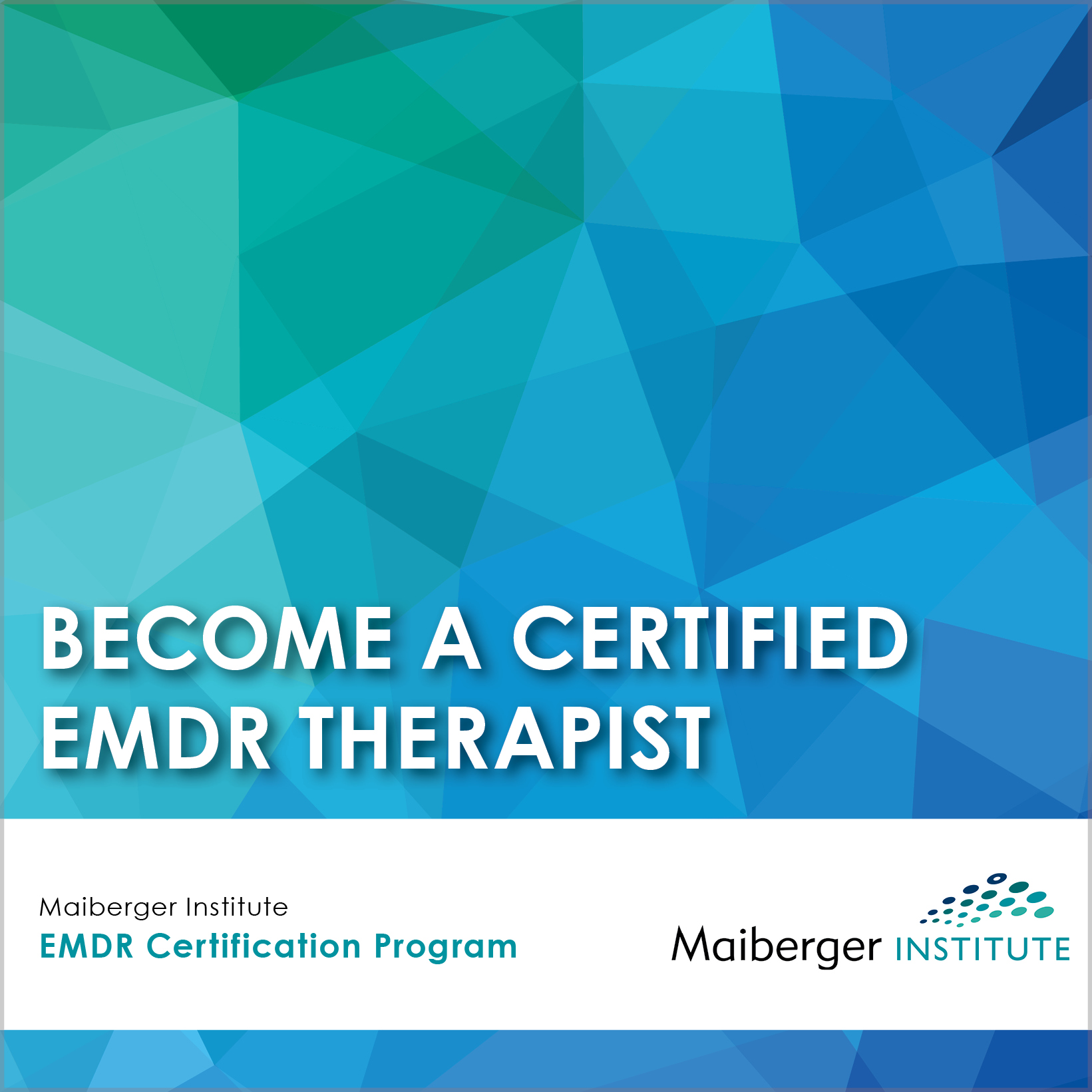
Remote Complex PTSD EMDR Protocol Course
A Somatic Approach to Working with C-PTSD
✅ Are you overwhelmed by the amount and complexity of your client’s traumas?
✅ Are your resourcing techniques failing in the Preparation phase of EMDR therapy?
✅ Are your clients unable to tolerate emotions and body sensations to meet EMDR readiness?
✅ Are your clients afraid of the Desensitization phase and are avoiding processing their traumas?
If you answer yes to any of these questions, it may be time to think about getting further training in working with Complex PTSD (C-PTSD) in the application of the 8 phases of EMDR therapy.
When working in the field of trauma, you will likely run into clients who have experienced Complex PTSD. Being able to navigate the complexity of working with C-PTSD takes somatic skills that are often not taught in the EMDR basic training. Many EMDR therapists end up avoiding or quitting using EMDR therapy with C-PTSD clients because it feels too hard to implement. Looking at the amount of trauma a client may have in their history, along with experiencing ongoing traumas, can overwhelm both the therapist and their clients. EMDR therapists can become afraid of harming their clients and start to feel inadequate that they don’t have the skills necessary to implement EMDR therapy successfully.
In this two-day course, participants will learn how to approach C-PTSD from a trauma-informed, client-centered, somatic approach so participants can begin to let go of their fears and overwhelm by finding creative and safe ways to help clients heal their traumas.
Part of learning how to work with CPTSD is approaching the treatment from a trauma-informed lens. Participants will learn how to recognize that there can be layers of shock trauma, developmental trauma, trauma through marginalization, community trauma, and intergenerational trauma, which can make EMDR therapy more challenging to navigate.
Participants in this workshop will learn that a “one size fits all” approach to EMDR therapy does not work well for working with C-PTSD. A client-centered approach is essential to consider the client’s intersectional identity and how that has influenced the traumas the client has experienced.
Through experiential practices, participants will learn how to help their clients become more embodied by regulating the nervous system when the body doesn’t feel safe. They will also learn how to recognize a “part” and work the “part” to find more support in the body, along with practicing how to develop dual awareness. The assessment phase of EMDR therapy will cover how to set up challenging targets, including working with a vague memory, pervasive negative cognitions, and sabotaging parts. During the desensitization phase, somatic resources will help therapists provide safety and support for clients, along with instructions on implementing interweaves for stuck processing.
This course is taught didactically and experientially so that participants learn through the embodiment of the skills they will practice with their clients. Approaching Complex PTSD somatically will allow participants to build their confidence in real time to enhance their skills immediately.
Remote Complex PTSD EMDR Protocol Course Course Learning Objectives
This Remote Complex PTSD EMDR Protocol Course will help you…
- Successfully implement EMDR therapy protocols in the 8 phases when working with C-PTSD
- Somatically gain skills so that clients become more embodied
- Feel more confident in your skills as an EMDR therapist to eliminate self-doubt
- Keep the fidelity of EMDR therapy while remaining human and creative in its implementation
- Make space for connection and support with your peers to help you gain confidence
Foundational Topics Covered:
- Recognizing the signs and symptoms of C-PTSD cognitively, emotionally, mentally, somatically, and relationally from an intersectional lens.
- Applying the polyvagal theory to support the window of tolerance in all 8 phases of EMDR therapy.
- Distinguishing nervous system states when gathering history.
- Learn how to use somatic resources when the client feels that their body is not safe.
- Understand when a “part” has arrived in a session and how to resource the “part.”
- Discover ways to develop allies when there are none.
- Find ways to provide safety for “parts” during processing.
- Learn how to adapt the standard protocol when targets seem vague or difficult to access.
- Implement somatic tools to support the client’s nervous system during the Desensitization phase.
- Gather effective interweaves for stuck processing during the Desensitization phase.
- Provide safe endings for “parts” so the client can regulate between sessions.
In this live two-day remote course, you will experience:
- Live didactic lectures that include examples of the instructor’s personal experiences and working with clients to make the material approachable, relatable, and easy to understand.
- Live demonstrations to exhibit the procedural steps in real-time, bringing the material from theory into reality. Time for processing afterward allows for more specific questions and answers.
- Be provided with detailed scripted protocols to support your learning.
- Experience small break-out groups to practice resourcing to bring embodiment to your sessions. Through these small break-out groups, you will have time for personal engagement, discussion, and self-reflection and receive personalized guidance from the instructor.
Eligibility Requirements for Remote Complex PTSD EMDR Protocol Course
- You must have completed a standard 50-hour “EMDR therapy basic training” course (aka Remote EMDR Training, EMDR Basic Training, Virtual EMDR Basic Training) to be eligible for this course.
- You must confirm your eligibility prior to enrollment by submitting a scanned copy/photo of your “Certificate of Completion” from a Maiberger Institute Remote EMDR Training course (or equivalent “EMDR basic training” course) to [email protected]. If you completed a Remote EMDR Training course through the Maiberger Institute, you must contact us using the original email account we have on file when you originally took the training.
- First name and last name on your “Certificate of Completion” must match the first name and last name on your state mental health license.
- Please send a scanned copy/photo of Your “Certificate of Completion” to [email protected] prior to enrollment with the Subject Heading: “Eligibility Requirement for Remote Complex PTSD EMDR Protocol Course – [insert dates of Course]”
Remote Complex PTSD EMDR Protocol Course Trainers
The Maiberger Institute Remote Complex PTSD EMDR Protocol Course is a live 12-hour comprehensive two-day program conducted remotely. Course size is limited to 24 participants to ensure that each participant is given opportunity to practice their skills.
This Remote Complex PTSD EMDR Protocol Course was personally created by Barb Maiberger, the founder and CE Program Administrator for the Maiberger Institute. Barb’s proprietary approach has pioneered the further integration of somatic interventions into EMDR therapy. She is the author of “Remote Together: A Therapist’s Guide to Cultivating a Sustainable Practice,” “EMDR Essentials: A Guide for Clients and Therapists“, and co-author of “EMDR Therapy and Somatic Psychology: Interventions to Enhance Embodiment in Trauma Treatment.
The Remote Complex PTSD EMDR Protocol Course is either taught by Barb Maiberger, or by a Maiberger Institute Certified EMDR Trainer/Instructor-in-Training personally trained by Barb Maiberger, all of whom have worked with the Maiberger Institute for years, and have years of experience in EMDR therapy and helping participants integrate this psychotherapeutic modality into their practices. The trainers give individual attention to each participant so that the skills needed to successfully use EMDR therapy can be integrated on an individual basis building on the strengths of each participant. This provides participants with a solid foundation of knowledge in which to grow their skills in EMDR Therapy.
Remote Complex PTSD EMDR Protocol Course Materials
- Participants will be provided with an online copy of the Maiberger Institute’s Remote Complex PTSD EMDR Protocol Course Packet.
- Instructions on how to download the Packet are provided shortly before the course start date, and available only for the duration of the course.
- Participants are required to bring their own Packet to the course.
- Participants may either bring the Packet .pdf form to view on a laptop or tablet or choose to print the Packet themselves. It is recommended to bring a notebook to write on if using a laptop or tablet.
- Copies will not be available at the training.
- Online materials are copyright protected and will only be available for the duration of the training.
Technical Requirements for Participating in Remote Complex PTSD EMDR Protocol Course
All Participants must have access to a computer, broadband Internet connection, access to email, and meet all of the following technical requirements in order to participate in this Remote Complex PTSD EMDR Protocol Course.
Hardware
- Desktop or mobile computer (tablets and smartphones not recommended)
- 2GB or more of RAM (4GB dual bank RAM recommended for better performance)
- 2.5 GHz Dual Core Intel Core i5 and higher
- Microphone and speakers (built-in or USB plug-in, headphones also recommended)
- Webcam (built-in or USB plug-in)
- Ethernet cable (direct connection to router/modem recommended)
- WiFi/Bluetooth not recommended
- Access to email account (must be same one used for enrollment and eligibility confirmation)
Operating System
- Windows 7 or higher
- Mac OS X 10.9 or higher
Broadband Internet Connection
- 1 Mbps or better (3 Mbps broadband recommended)
Web Browser
- Google Chrome (most recent 2 versions)(recommended)
- Mozilla Firefox (most recent 2 versions)
- Internet Explorer (most recent 2 versions)
- Microsoft Edge (most recent 2 versions)
- Apple Safari (most recent 2 versions)
Software
- Zoom desktop app (required)
Instructions on how to access the live Remote Complex PTSD EMDR Protocol Course are provided shortly before the course start date.
Visit Zoom’s website for more systems requirements, or contact [email protected] for additional questions regarding the technical requirements for the Remote Complex PTSD EMDR Protocol Course.
Certificate of Completion
Upon completion of all Remote Complex PTSD EMDR Protocol Course requirements, participants will receive a “Certificate of Completion” from the Maiberger Institute, along with CE Credit Hours. In order to receive a “Certificate of Completion” the participant must attend the entirety of the training (12 hours, two-days). No certificate will be awarded for partial attendance/no-shows.
A Remote Complex PTSD EMDR Protocol Course “Certificate of Completion” is not the same as a Remote EMDR Training “Certificate of Completion” nor is it the same as being a “Certified EMDR Therapist.”
Credit Hours for Remote Complex PTSD EMDR Protocol Course
The Maiberger Institute Remote Complex PTSD EMDR Protocol Course consists of two consecutive days of live training sessions conducted remotely. 12 CE Credit Hours Total
The Maiberger Institute is approved by the American Psychological Association (APA) to sponsor continuing education for psychologists. The Maiberger Institute maintains responsibility for this program and its contents.
The Maiberger Institute has been approved by National Board for Certified Counselors (NBCC) as an Approved Continuing Education Provider, ACEP – Provider #6436. Programs that do not qualify for NBCC CE Hours are clearly identified. Maiberger Institute is solely responsible for all aspect of the programs.
Americans with Disabilities Act
This program is in compliance with the Americans with Disabilities Act. Our policy is to provide equal opportunity for all participants, including those with disabilities. The Maiberger Institute does not discriminate against a qualified participant with a disability who can perform the essential functions of the Training with or without an accommodation.
If, because of a physical or mental disability, you need an accommodation to enable you to participate in the training, please notify contact us prior to registration so that together we can discuss your situation and how we might be able to help. Unless you notify us, we might not know you need an accommodation, so please tell us. The Maiberger is willing to make an accommodation that is reasonable, so long as it does not result in undue hardship to the business.
Participant Agreement for Remote Complex PTSD EMDR Protocol Course
All applicants must (i) confirm eligibility requirements as detailed in the Participant Agreement (including state licensing and graduate degree prerequisites), or receive written confirmation of eligibility from the Maiberger Institute, AND (ii) agree to the terms and conditions in the Participant Agreement, prior to registration and providing payment pursuant to the Participant Agreement.
Participant Agreement Eligibility Requirements Payment and Cancellation Policies Rates, Dates, Times FAQ
V202406121711













